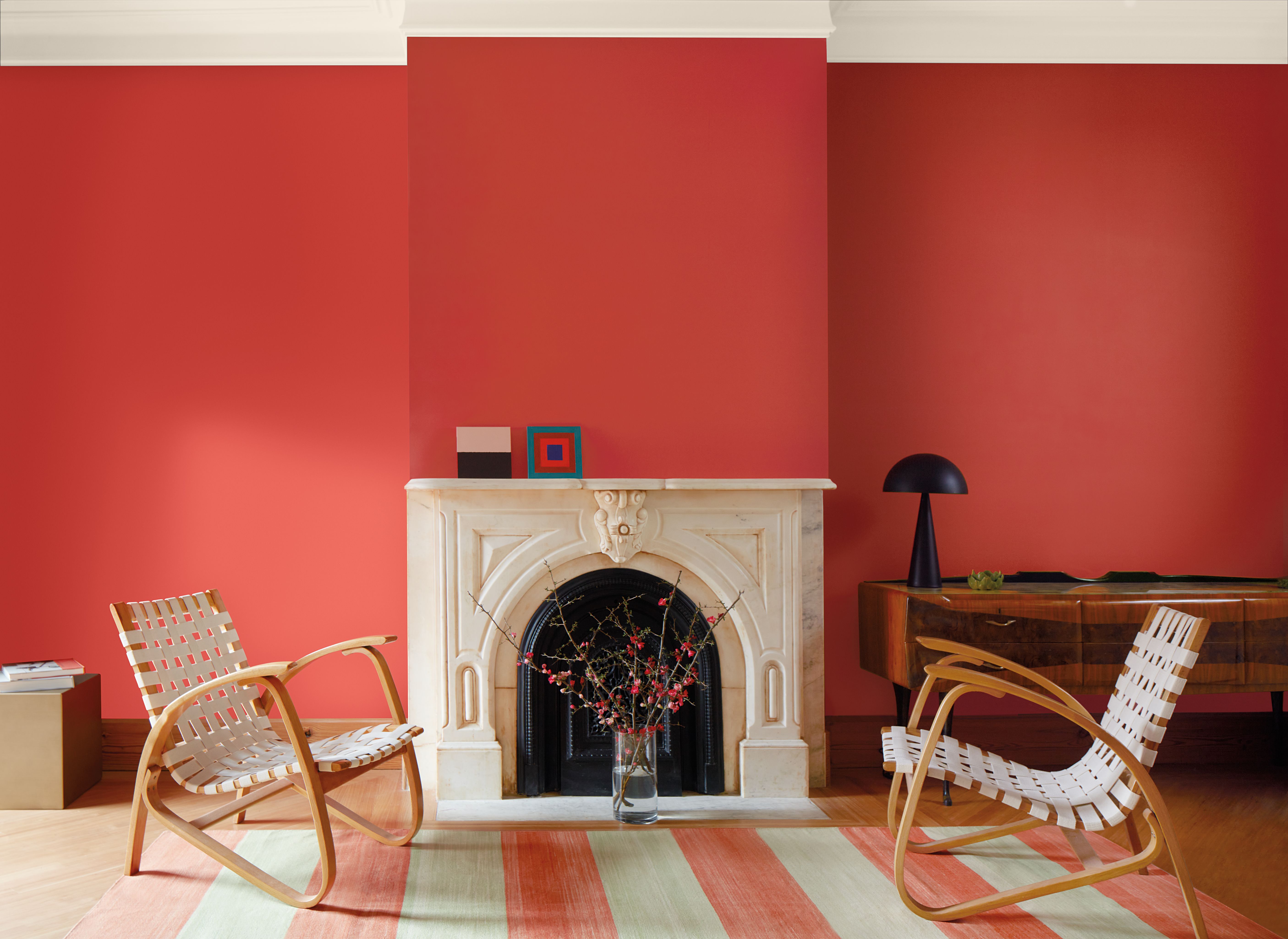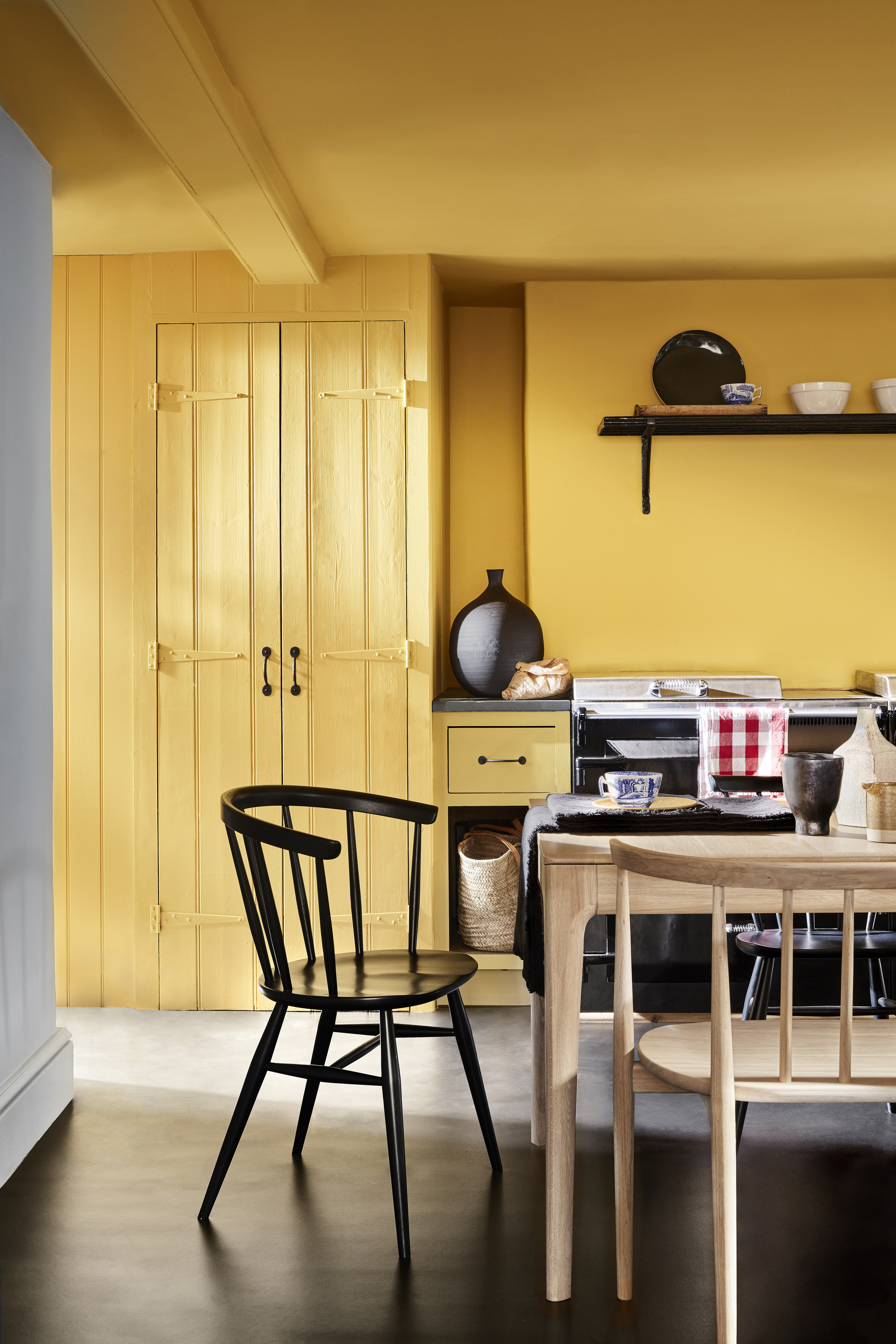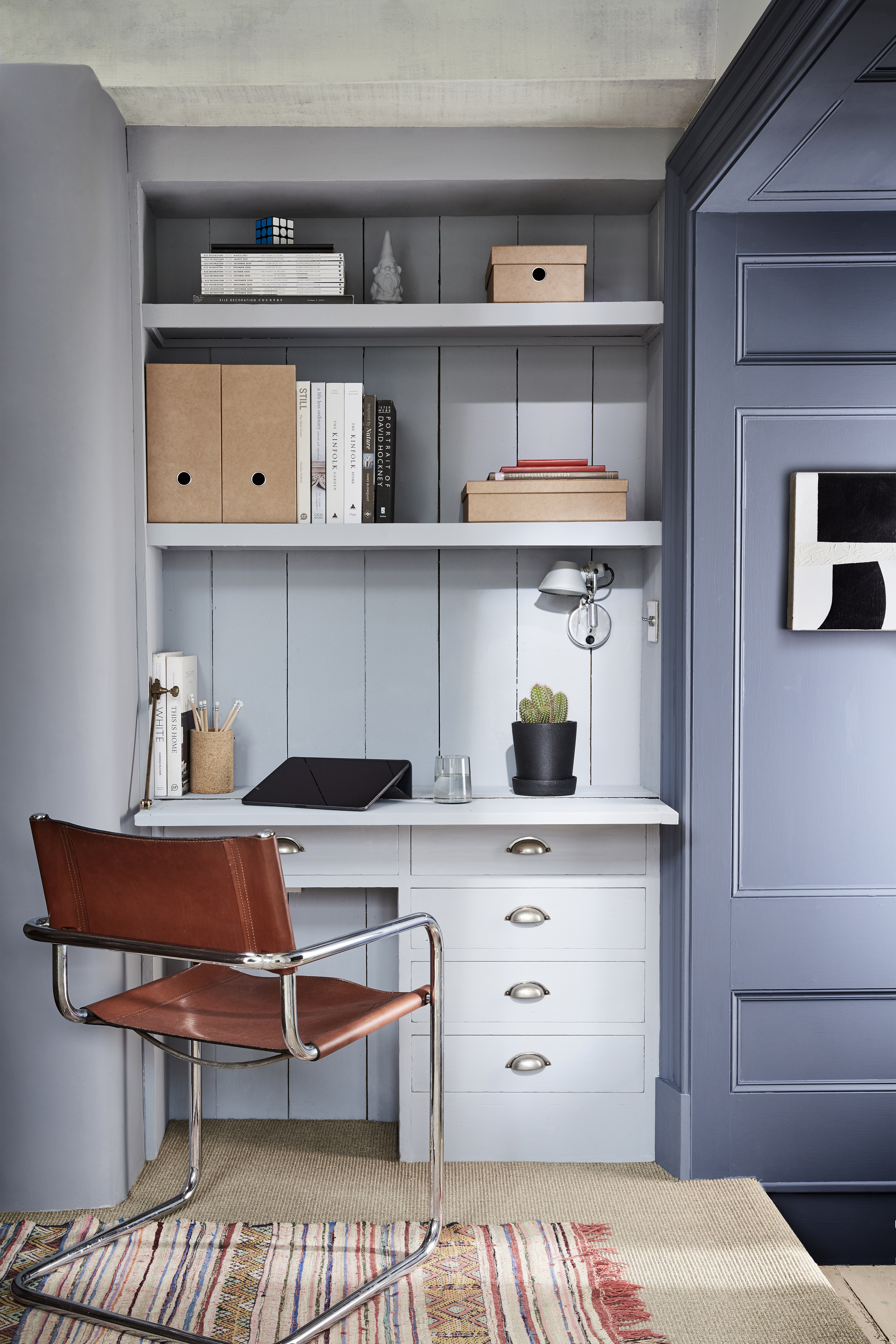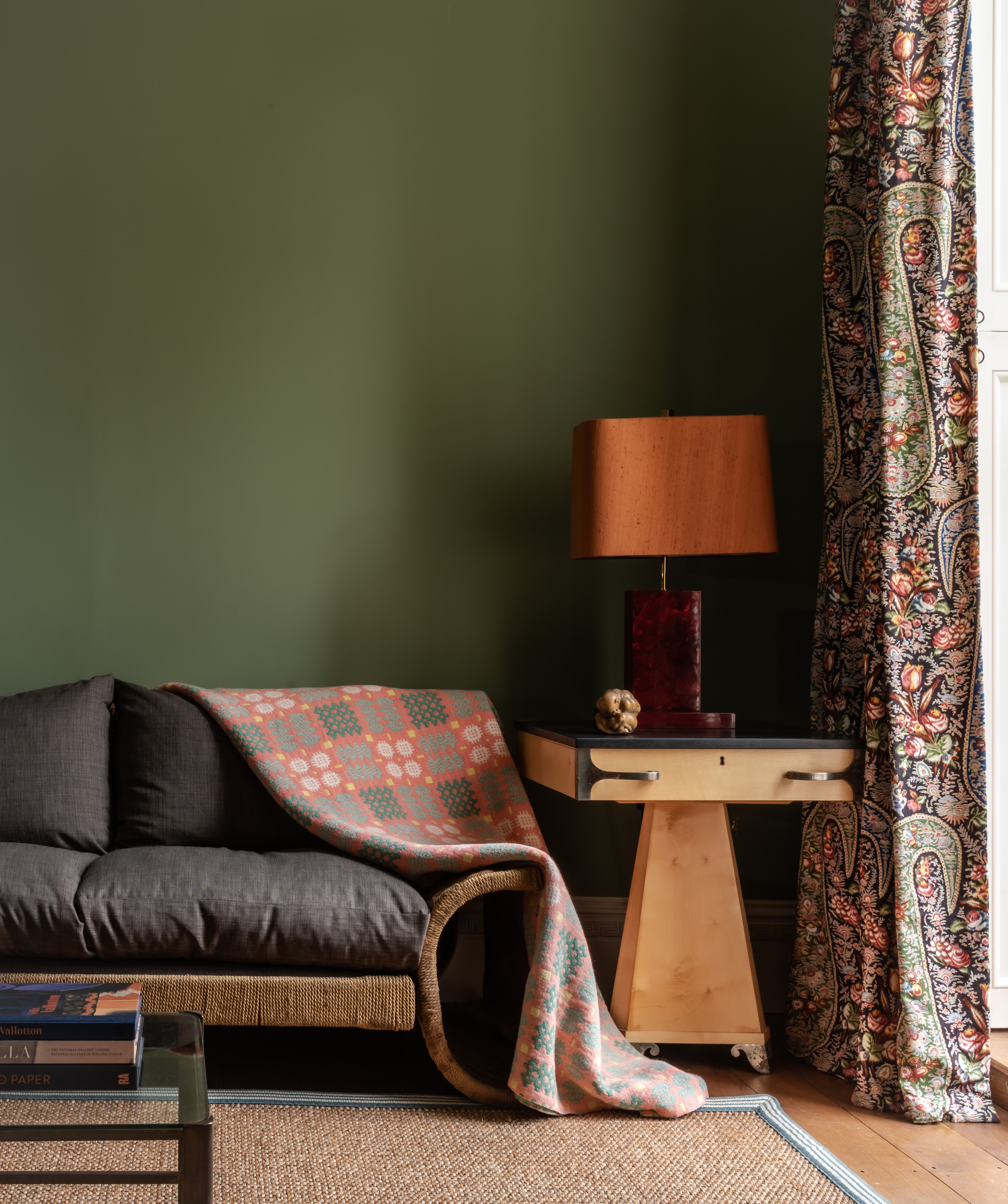How to make paint go further – 3 preventative measures to make sure you don't run out mid-project
There's nothing worse than running out of paint before you've finished your job. Luckily, these expert tips can help prevent this nightmare from occurring


The Livingetc newsletters are your inside source for what’s shaping interiors now - and what’s next. Discover trend forecasts, smart style ideas, and curated shopping inspiration that brings design to life. Subscribe today and stay ahead of the curve.
You are now subscribed
Your newsletter sign-up was successful
How do you make paint go further? This question may have plagued your mind if you've ever realized the small tin of paint you opted for isn't going to cover your whole wall. Stood with your paintbrush in hand and half a can of paint, you can't help but wonder if there was a way to make it cover a larger surface.
Well, you might kick yourself to learn that there are in fact several ways to do so. Rather than instant solutions though, these tend to be preventative measures, and it largely comes down to your paint application. 'Finding out toward the end of a project that you don’t have enough paint to finish the job can be a frustrating realization, but there are several tips and tricks that can help you avoid this,' says Will Thompson, Head of Product Marketing and paint specialist at Valspar.
Executing the perfect paint idea can be pricey, and you certainly don't want to splash out on extra cans of paint that could have easily been avoided. And, as Will notes: 'With the rise in cost of living, many of us are looking for ways to be smarter with our money, redecorating included.' To help you get more bang for your buck, Will shares his tips on how to make your paint go further for a decorating project that's smooth sailing.

Lilith is an expert at following news and trends across the world of interior design. She's committed to helping readers make the best choices in their homes through sharing practical tips and guides. For this piece she asked painting and decorating experts for their advice on how to make a can of paint last longer.
How to make paint go further
1. Use a foam roller instead of a paintbrush

When it comes to how to paint a wall, no one's expecting you to rely on a paintbrush alone. Using a foam roller is the best way to get a smooth, even coverage with less wasted product, helping your tin of paint go the extra mile.
'Using a foam roller instead of a paintbrush can help to cover a larger area and spread a smoother coat of paint,' explains Will from Valspar. 'You should apply even pressure and work in a V motion to help spread the paint evenly.' We love this set of three rollers from Amazon, complete with a tray and brushes for cutting in.
It's also important to look after your brushes and tools to make your paint go that little bit further. As Will explains: 'New and well-maintained tools are paint savers as they will help spread the paint evenly on the surface, avoiding lumps and marks that will force you to repaint the same spot.'
So, don't be tempted to use a dirty paintbrush or reuse a roller unless you want them to effectively swallow up your paint! Look at our tips on how to clean a paint brush for a smoother application.
The Livingetc newsletters are your inside source for what’s shaping interiors now - and what’s next. Discover trend forecasts, smart style ideas, and curated shopping inspiration that brings design to life. Subscribe today and stay ahead of the curve.
2. Ensure your walls are smooth

Painting a wall is as much about the preparation as the painting itself. An important decorating 101 is to always ensure you have smooth, sanded walls to work with, otherwise you'll have an uneven finish that could also lead to issues as your paint dries.
'Ensuring your walls are smooth ahead of painting will extend the coverage of your paint as excess paint can gather in the grooves and nooks of a rough or porous surface,' explains Will. 'Wrap 80 grit sandpaper around a block and sand the surfaces for a smooth finish that will get your paint to stick better, then wipe down the dust with a damp sponge.'
If you're feeling up to the challenge, you can sand your walls yourself, but we love this BOSCH hand sander from Amazon as it cuts out much of the hard work for you.
3. Always account for at least 10% more paint than needed

It might sound obvious, but to truly make your paint go further you should always buy more than you need. Not only does this minimize the risk of running out of paint, but it's handy to have some spare paint lying around for any touch ups over time.
'As a general rule, we recommend accounting for at least 10% more paint than is needed for the space,' says Will. 'This will avoid you having to scrape the bottom of the tin and, as mentioned, also allow for any touch ups in the future.'
While this is a handy guide, it's easier said than done - you might be sat there without a clue how much paint you need for a room in the first place, let alone factoring in the extra 10%. If this is the case, read our guide on how much paint you need for one wall to help you.
Should you use paint thinner to make paint go further?
You might be tempted to add paint thinner or even water to your can of paint to help it to go further, but this isn't recommended. Although it will reduce the viscosity of the solution and is safe to use, it should only be done at the start of a paint job, not mid-way through.
'Thinning your paint will affect the color, coverage and drying time of your paint,' Will says. If you use thinned paint on half of you wall, it will look uneven, blotchy, and will dry at different rates. However, you can use thinner at the start of a job if you want your paint to have a lighter coverage.

Lilith Hudson is a freelance writer and regular contributor to Livingetc. She holds an MA in Magazine Journalism from City, University of London, and has written for various titles including Homes & Gardens, House Beautiful, Advnture, the Saturday Times Magazine, Evening Standard, DJ Mag, Metro, and The Simple Things Magazine.
Prior to going freelance, Lilith was the News and Trends Editor at Livingetc. It was a role that helped her develop a keen eye for spotting all the latest micro-trends, interior hacks, and viral decor must-haves you need in your home. With a constant ear to the ground on the design scene, she's ahead of the curve when it comes to the latest color that's sweeping interiors or the hot new style to decorate our homes.